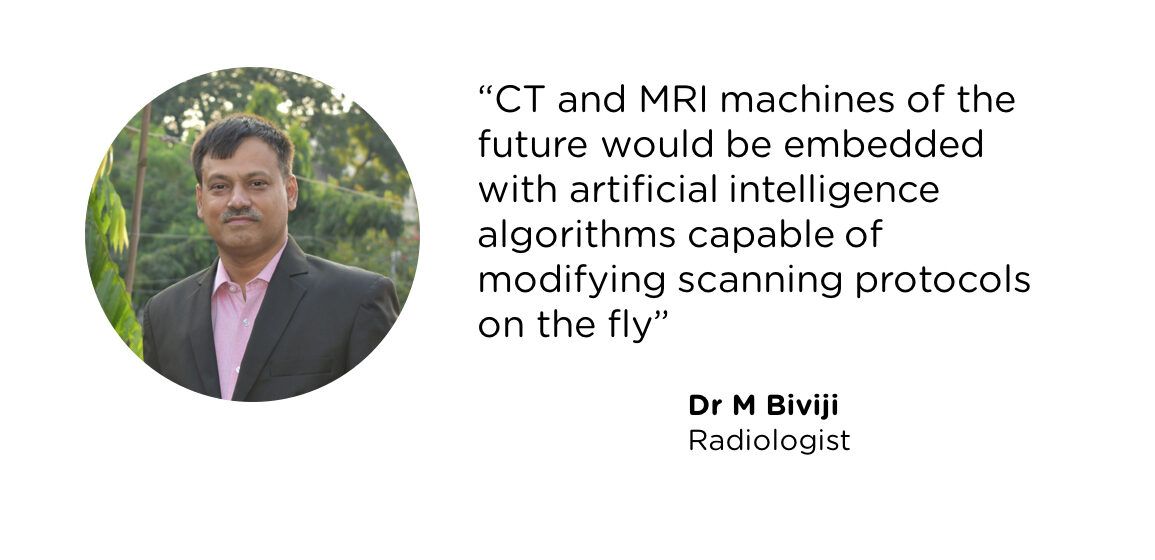With close to 30 years of radiology experience, Dr Biviji is an eminent radiologist based in Nagpur. He is an authority on developing deep learning solutions to radiology problems and works closely with early-stage healthcare technology innovators.

Back
Q&A with Dr Mustafa Biviji on artificial intelligence in radiology.
How do you see Artificial Intelligence in radiology evolving in the future?
In the future, radiologists and radiographers could be replaced by intelligent machines. CT and MRI machines of the future would be embedded with AI programs capable of modifying scanning protocols on the fly, depending on the disease process initially identified. Highly accurate automated reports would be produced almost instantly. Machines would prognosticate, identify as yet unknown imaging patterns associated with diseases and may also uncover new diseases.
There will be objectivity to the radiology reports with personal bias of the radiologist no longer a factor. Remote and isolated areas of the world will have an equal access to the best diagnostic information. Coupled with this would be better machine navigation during surgeries or probably even complete robotic surgery based on the imaging patterns identified with AI. Through it all, I believe that radiologists will continue to reinvent themselves.
How far away is the industry from realizing these goals, and how does Qure compare to similar solutions that you may have seen/ implemented?
These are initial days and the role of AI in Radiology is currently restricted to assistance. While most solutions talk about simplifying workflows, Qure to the best of my knowledge is the only one talking about automated reports with a remarkable degree of accuracy, thereby opening up exciting new prospects for the future. While the perfect radiology AI may be far in the future, at least a promising beginning has been made.
How does Qure.ai help in your radiology practice?
Qure.ai solutions in radiology now include automated head CT reports particularly for trauma and strokes. Reporting for these conditions would earlier have either necessitated a sleepless night or a delay in reporting. Automated reports can now be used to assist residents and help can be sought in case of a doubt or discrepancy. Delayed radiology reports will soon be a thing of the past.
How do you think the Qure’s Chest X-ray solution can help or is helping radiologists in their practice?
Qure’s chest X-ray solution presently is best targeted to a general practitioner in a remote or rural location interpreting his own chest radiographs. Qure CXR could help provide radiologist-level accuracy, previously only available at the larger centers in the bigger cities. Better radiology would lead to better treatment outcomes and obviate the need for patients to travel long distances to seek a diagnosis.
How do you think young radiologists should prepare for AI?
AI in the future will radically modify the role of a radiologist. I predict a significant blurring of the roles of a diagnostic radiologist, surgeon or a physician. The radiologist of the future will have to stop behaving like an unseen backroom doctor and reinvent to participate actively in patient management. Image assisted robotic surgeries and integrated patient care are not too far off in the future.